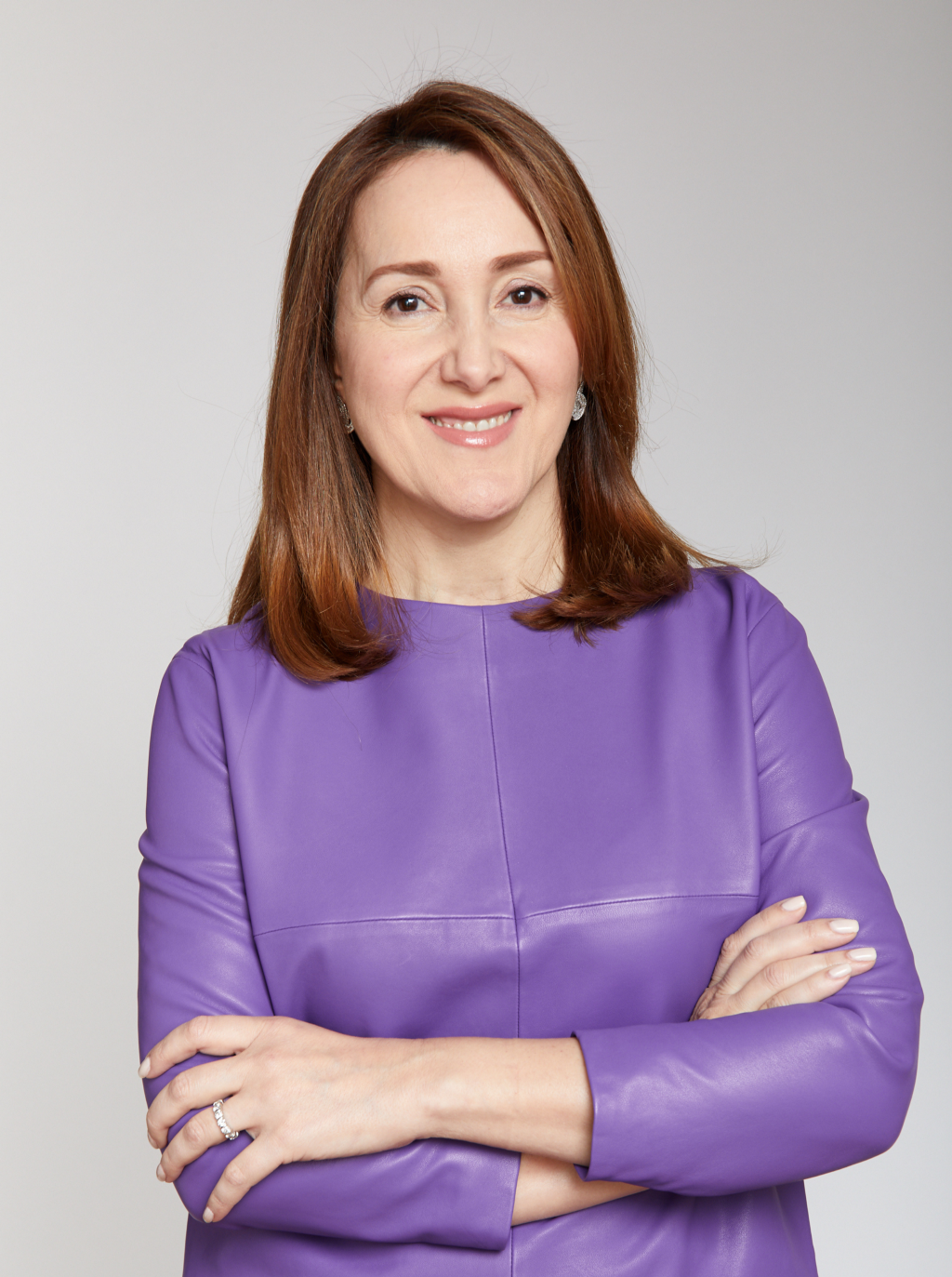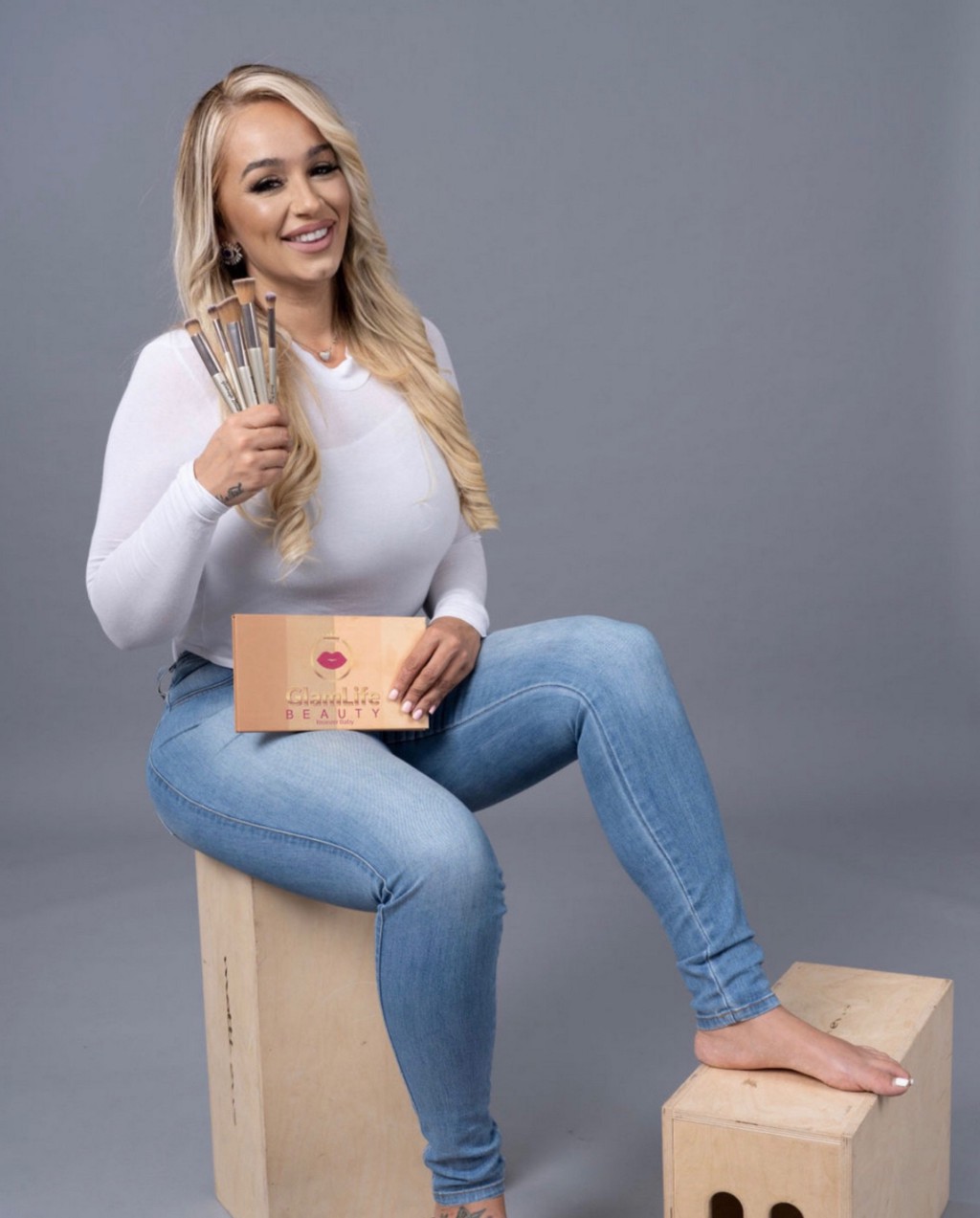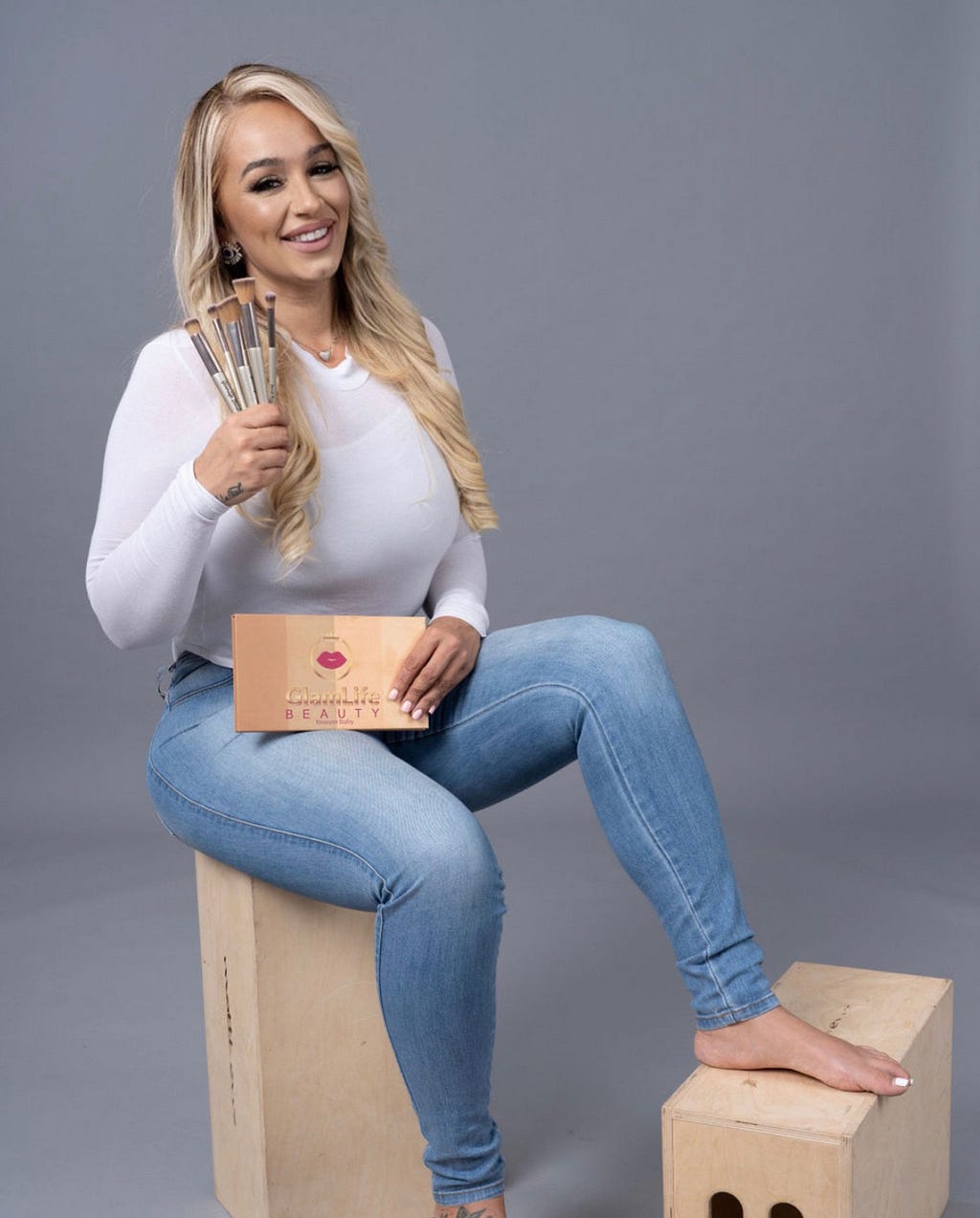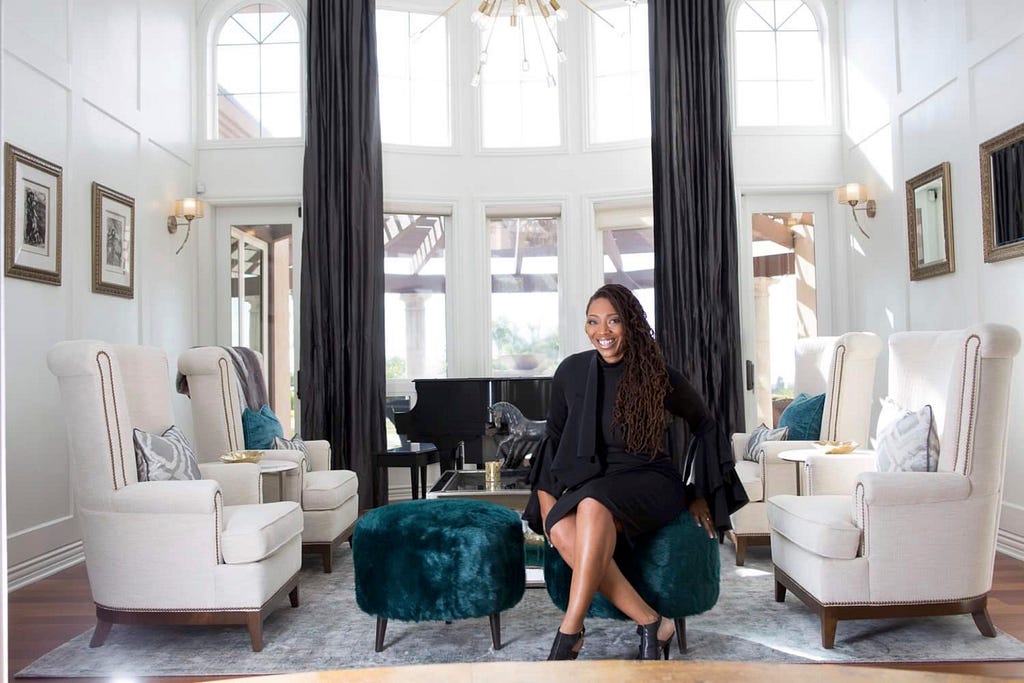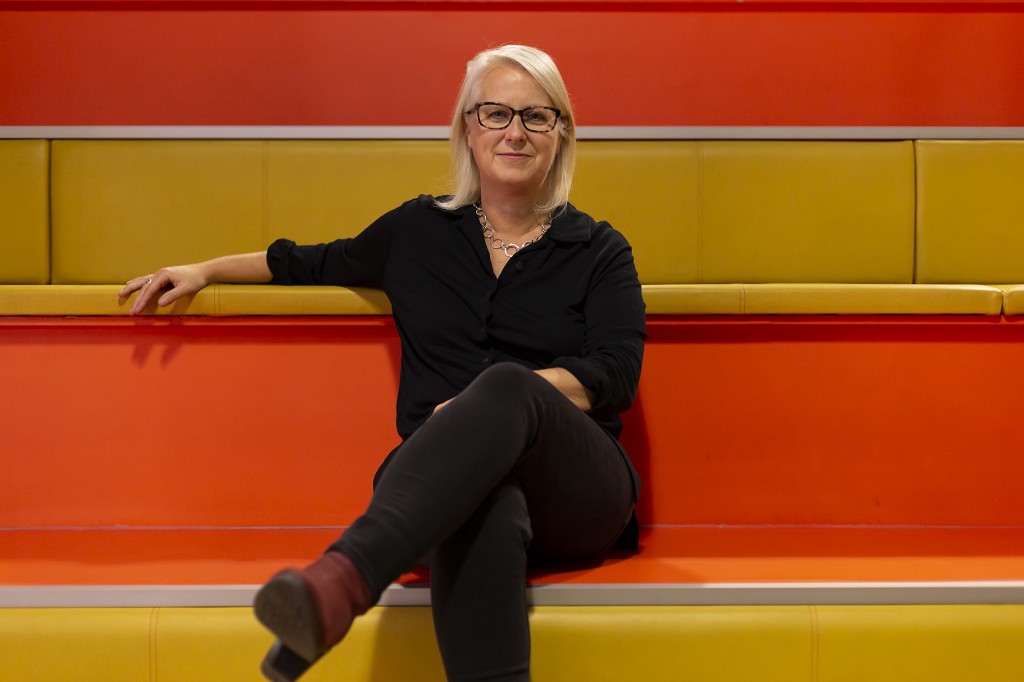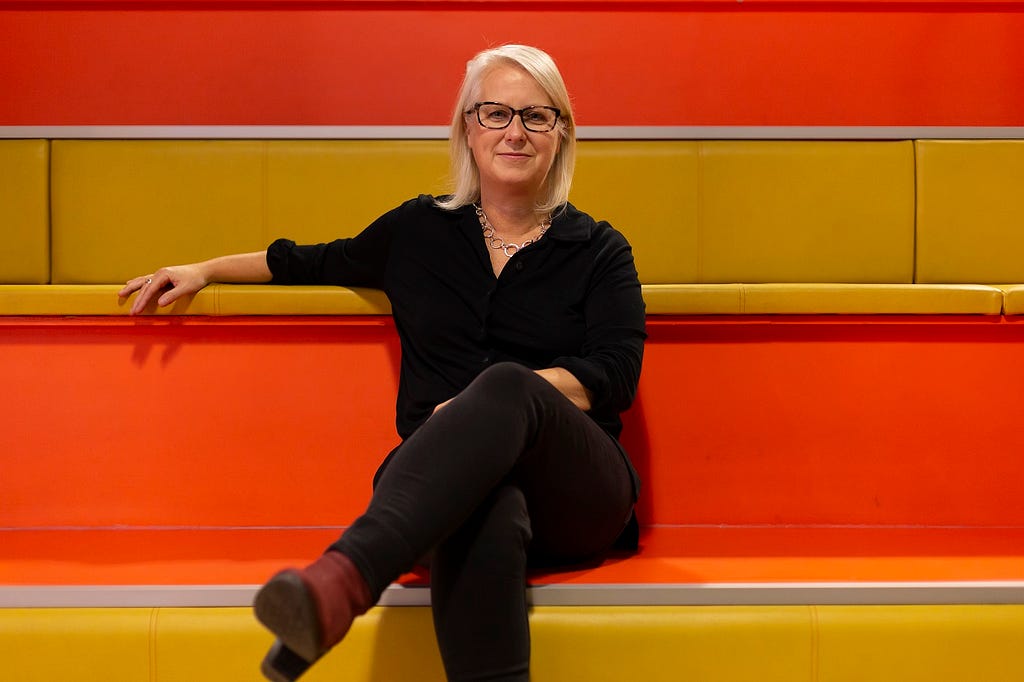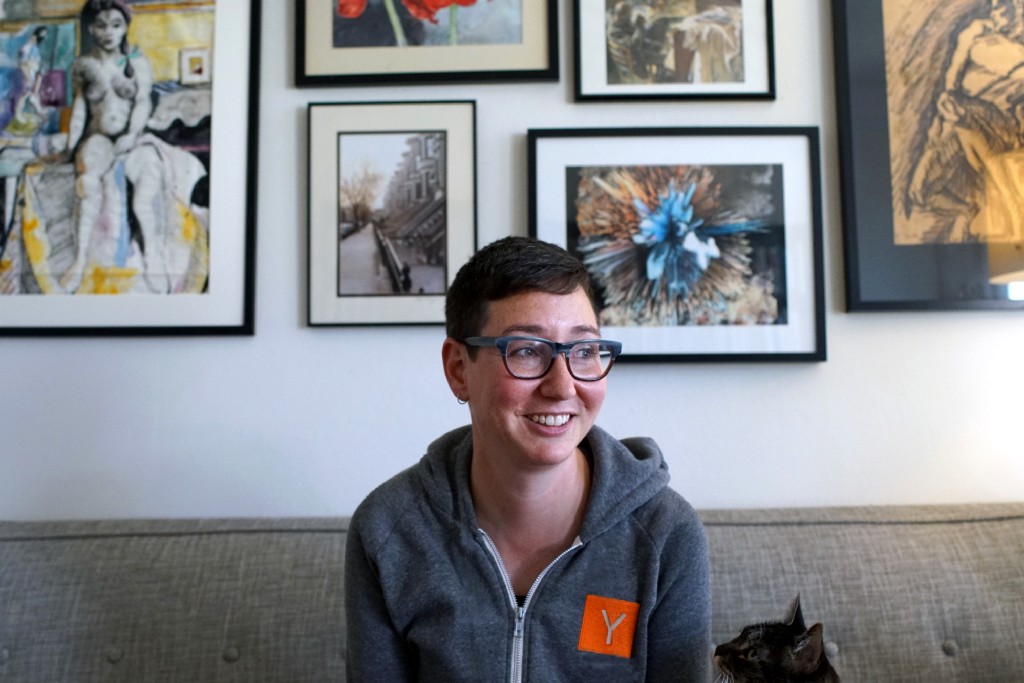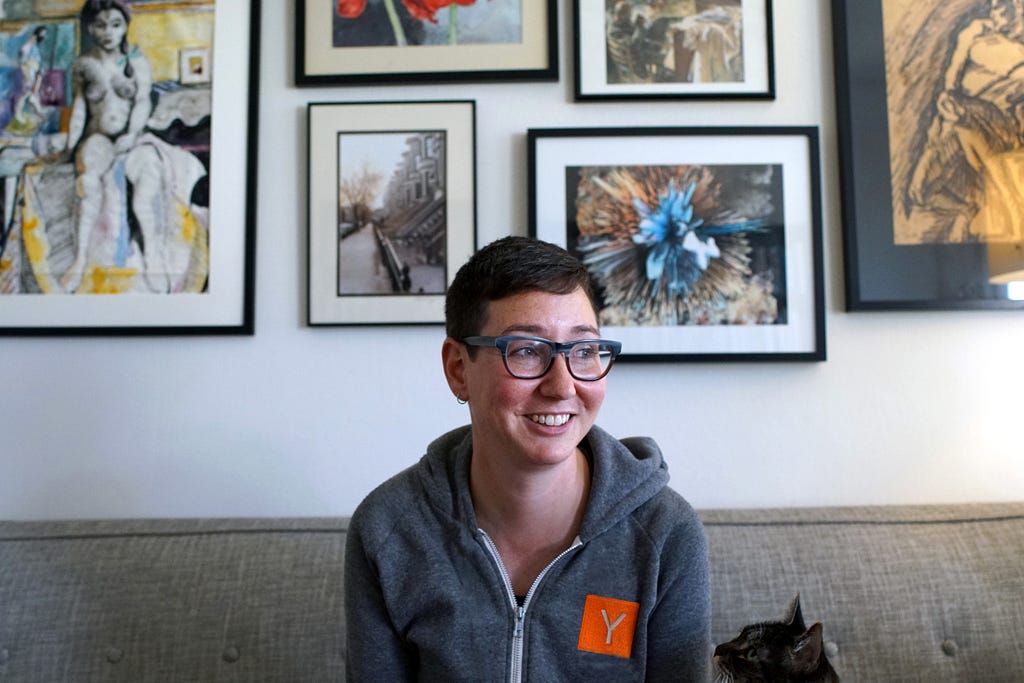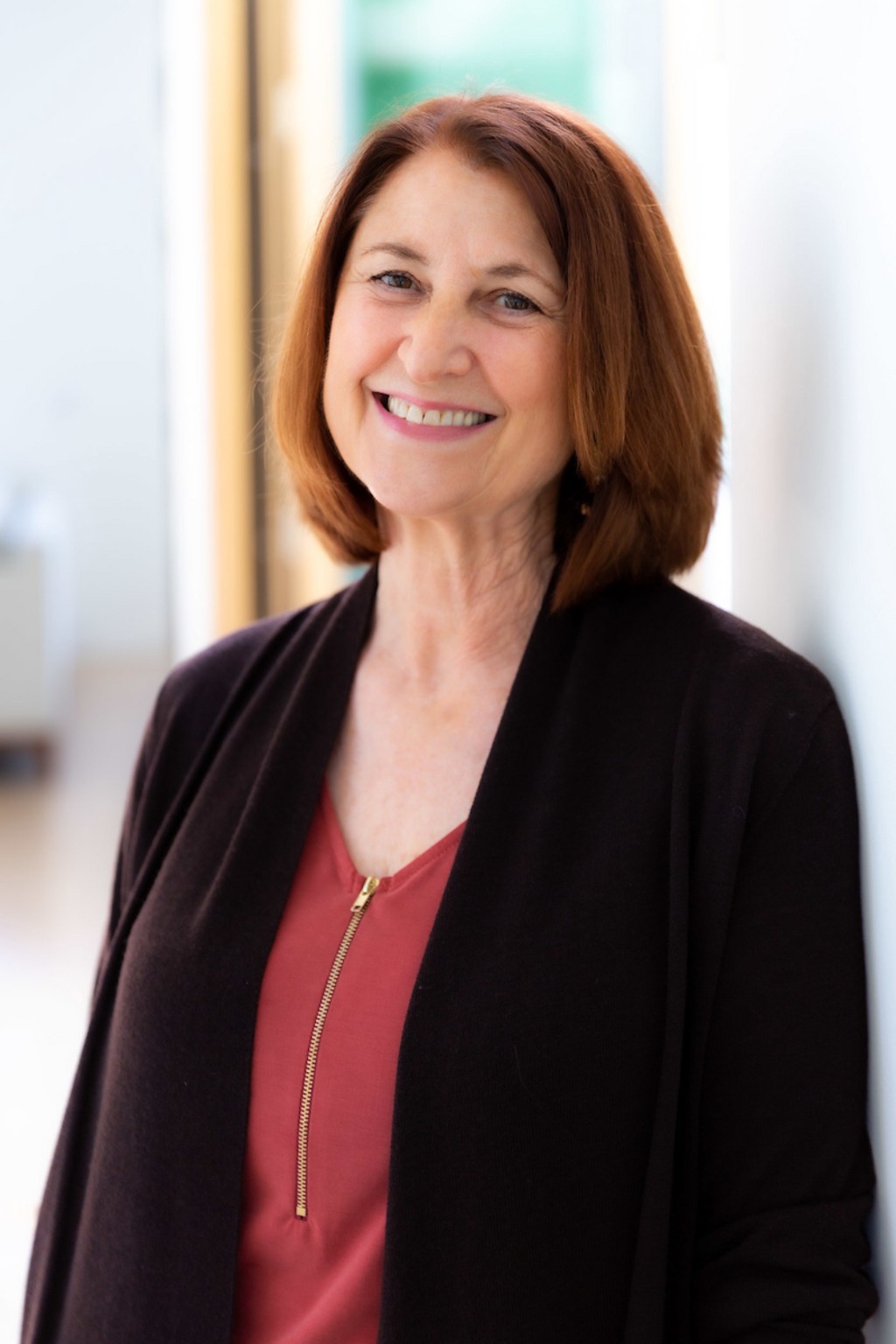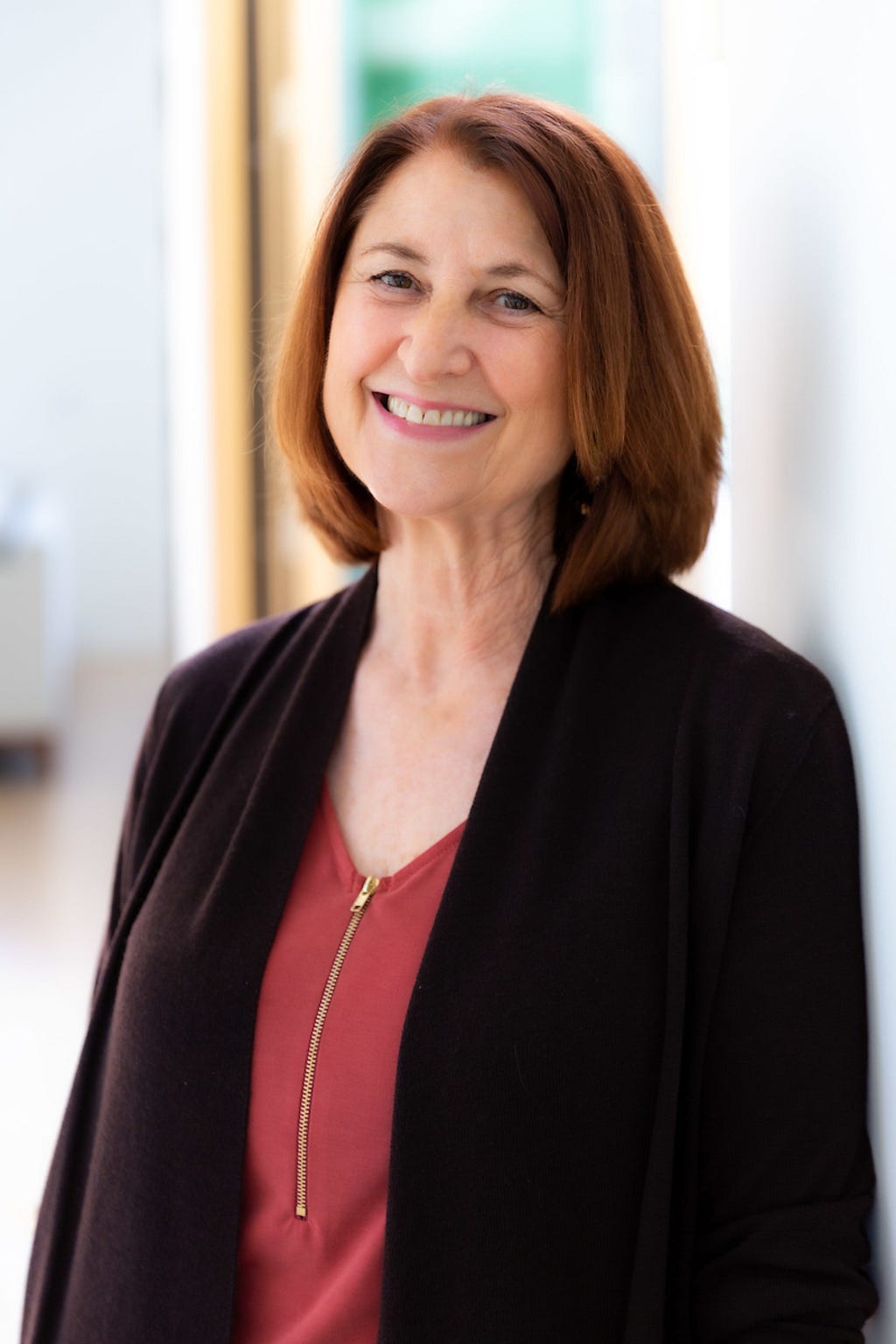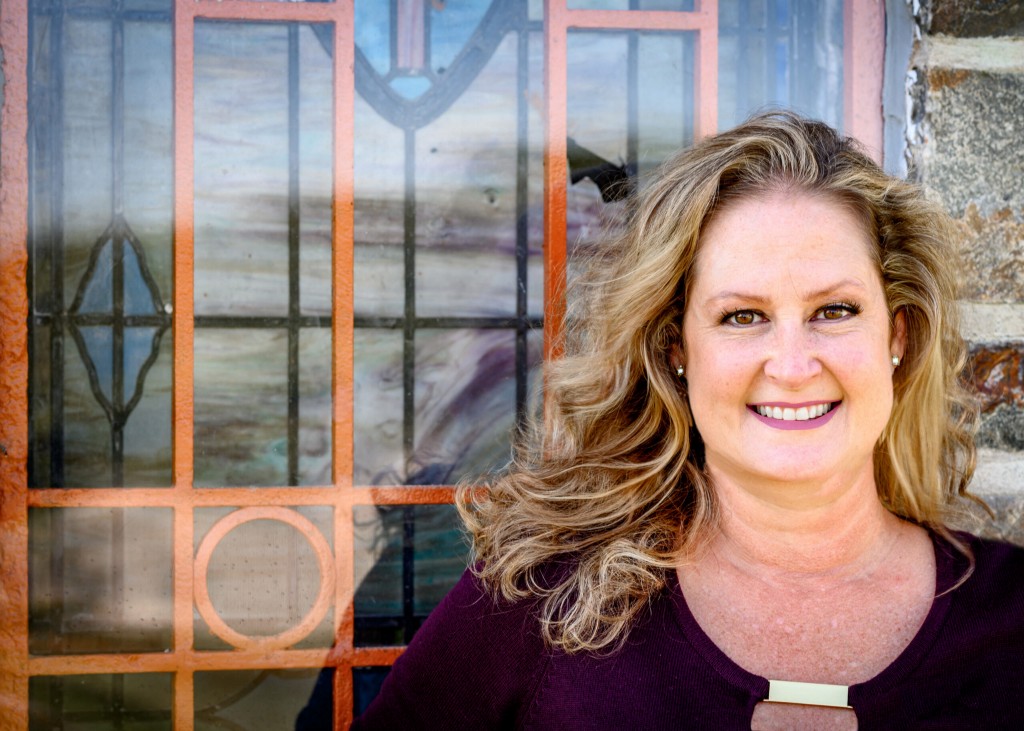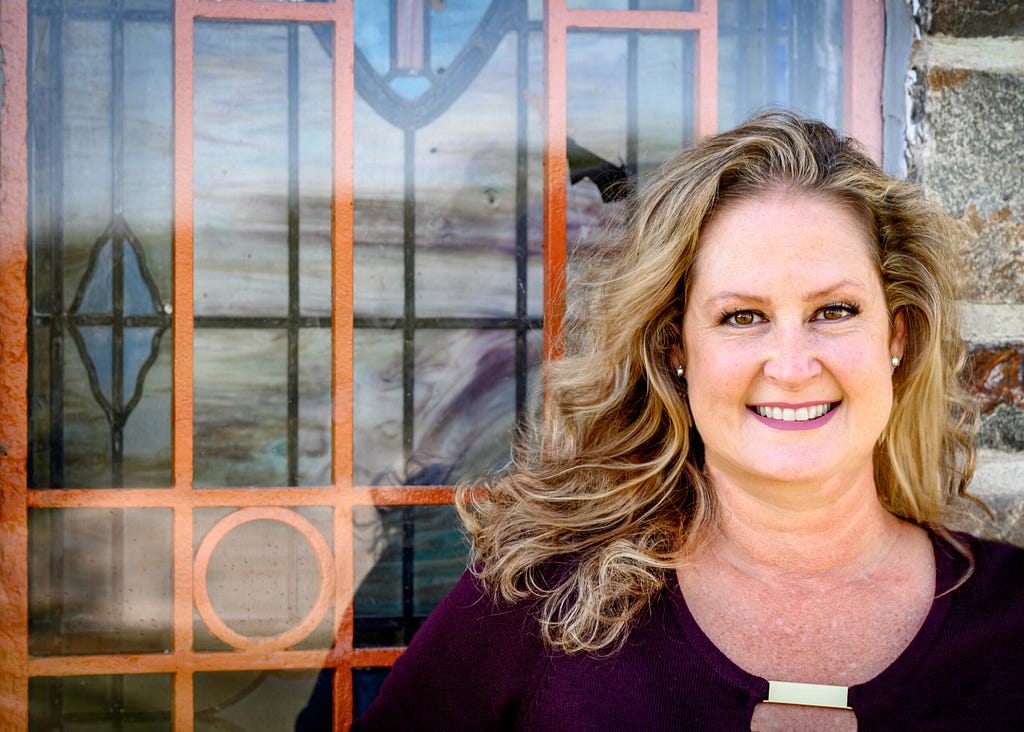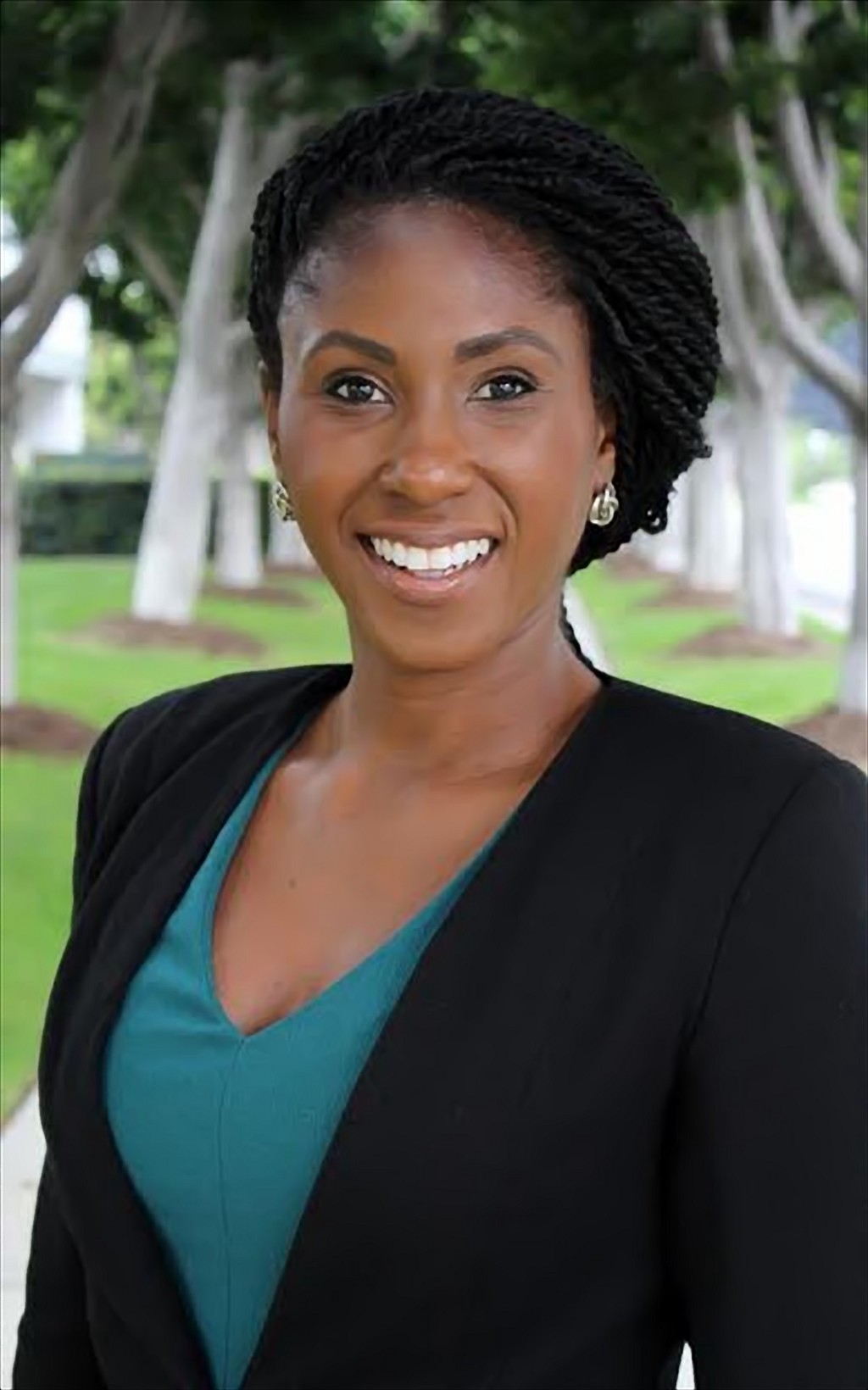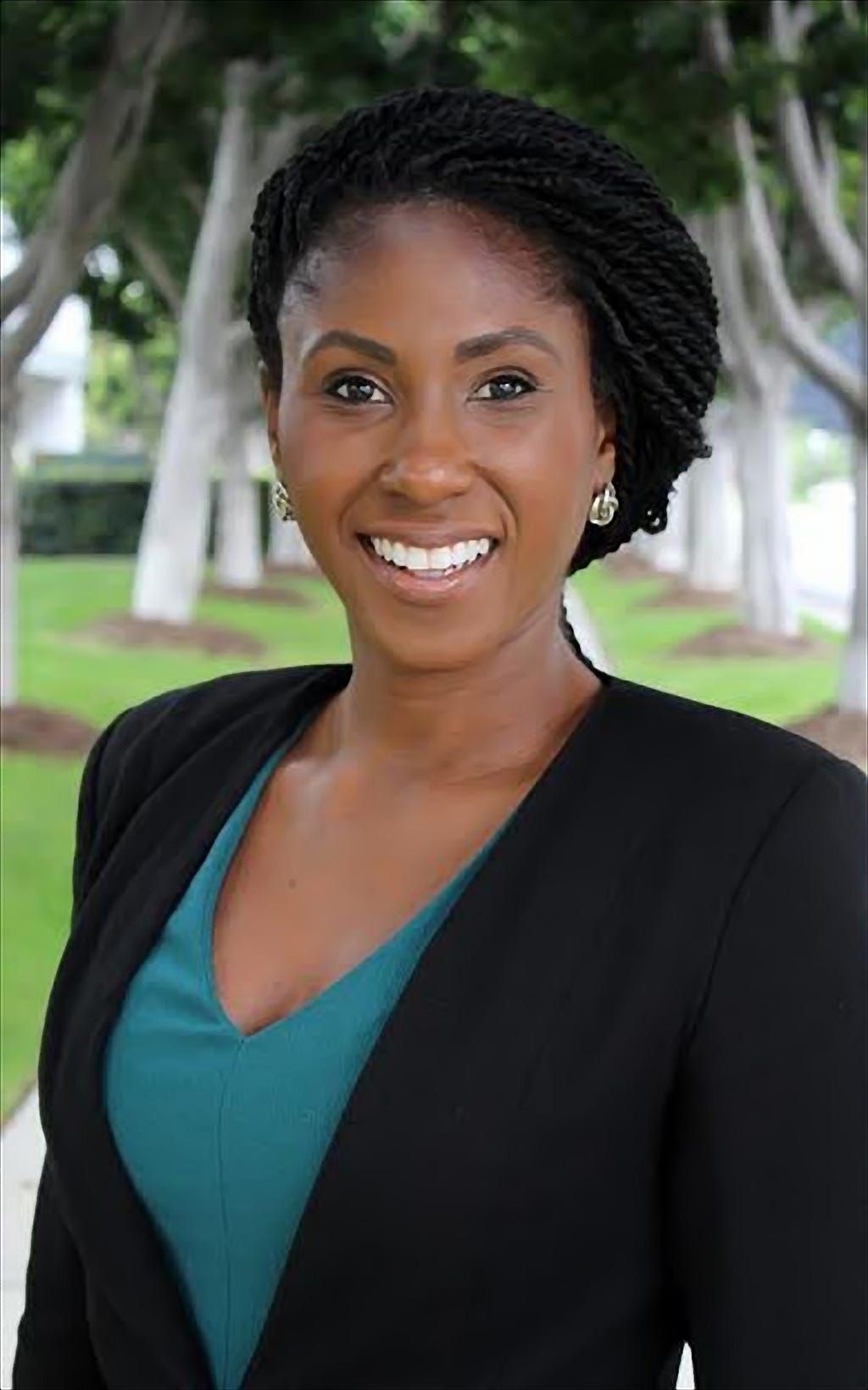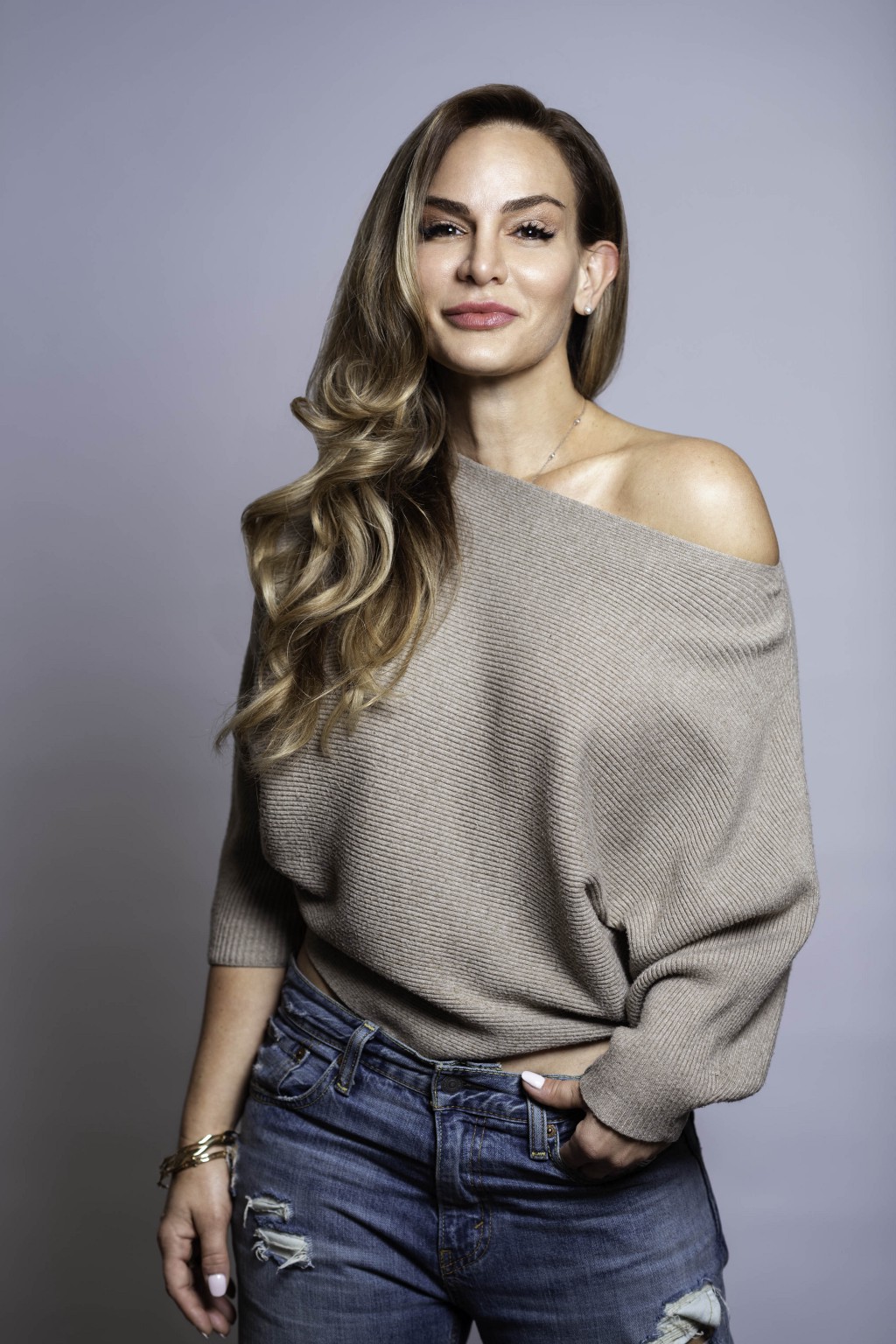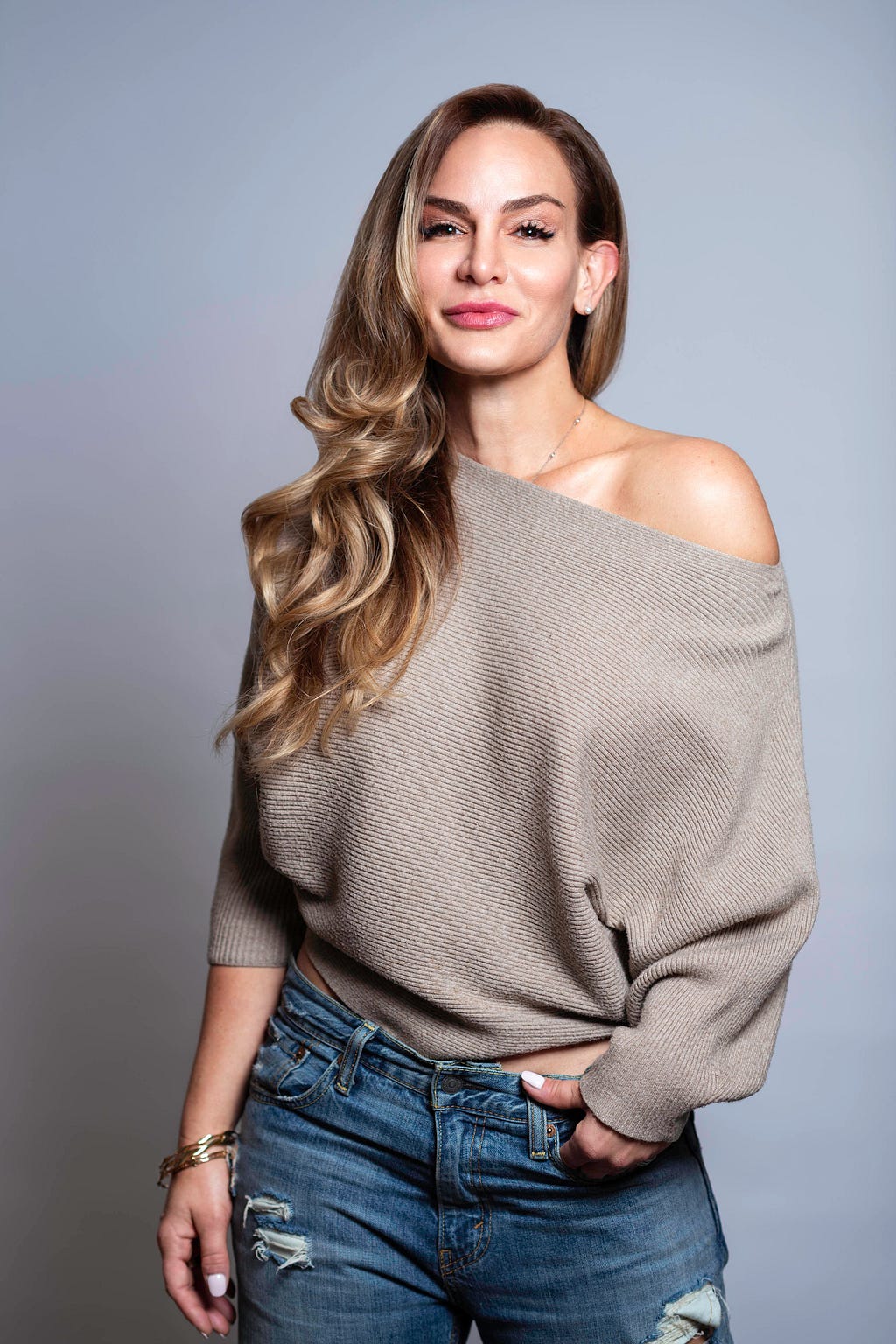Female Founders: Noosheen Hashemi of January AI On The Five Things You Need To Thrive and Succeed as a Woman Founder
An Interview With Candice Georgiadis
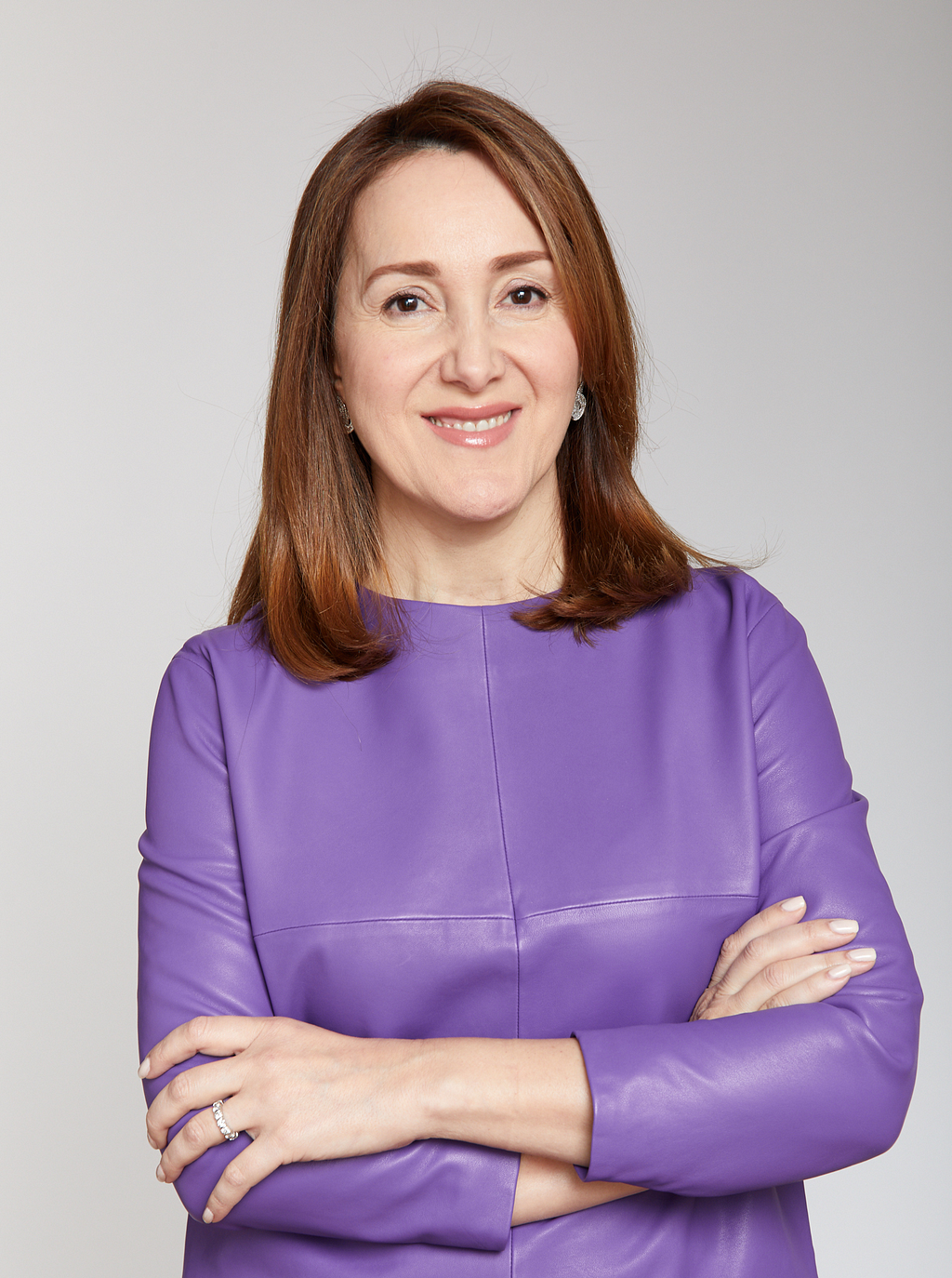
Great founders are curious and learn fast. They work hard, persist, and are resilient. They have a high risk profile and conviction around the market. They’re great people managers, inspiring leaders, and phenomenal storytellers. It’s all about the team they can build.
As a part of our series about “Why We Need More Women Founders”, I had the pleasure of interviewing Noosheen Hashemi.
Noosheen Hashemi is a tech veteran, entrepreneur, investor, and philanthropist. She is the founder and CEO of January AI, a precision health tech company that harnesses the power of artificial intelligence to prevent, predict, postpone and manage chronic disease. She also guides a family office that includes diverse investments in over 100 companies and venture capital funds. She is the founder of the HAND Foundation, focused on supporting scholars and organizations that promote discourse and socioeconomic growth among the disenfranchised. She lives in Silicon Valley.
Thank you so much for doing this with us! Before we dig in, our readers would like to get to know you a bit more. Can you tell us a bit about your “backstory”? What led you to this particular career path?
I had a successful early career. I walked into Oracle at age 22 when the company had just closed out a $26m year and in the next 5 years, we doubled our revenues each year. During this time, I took on more and more responsibilities — at one point leading 12 essential functions — and eventually became a Vice President. Oracle was my 18-hours-a-day focus. After a dozen years in tech, I decided to focus my attention on raising my kids and running a family office, which included over a dozen startups and two foundations. I was also my kids’ primary teacher, homeschooling them and sending them to school for social development, and taking them to 105 countries. As they approached college age I could decelerate the focus on homeschooling. So, I began accelerating my tech career once again. In 2013, I started to take on operating roles in our portfolio companies and, in 2017, I decided to take a page out of Larry Ellison’s playbook and invest in myself.
Can you share the most interesting story that happened to you since you began leading your company?
As a CEO of January AI, you’re recruiting 365 days out of the year. You can’t afford to use recruiters for every role so you become a recruiter yourself, spending countless hours sourcing on LinkedIn, asking your network for introductions to the smartest people they know who may be considering a transition or have a particular interest in your work, and so on. In my pursuit of a qualified Chief Science Officer, I cold-messaged the CSO of a top-three pharma company and mentioned that my cofounder had suggested I reach out for recommendations. He replied and we met shortly after in San Francisco to discuss January AI’s specific needs — like how academic or industry battle-hardened I needed the candidates to be — and that conversation led to a discussion about the pharma company’s needs and eventually a deal. It took one year, eight months, and 11 days to sign a contract but the view was very much worth the climb. Not only did I deepen my understanding of how to evaluate CSO candidates through the mentorship of my new friend, but also I was introduced to the massive opportunities for our offering in the pharma world.
Can you share a story about the funniest mistake you made when you were first starting? Can you tell us what lesson you learned from that?
I made mistakes but I’d say they were more tragicomic than funny. I have always been a sucker for smart people, and in my excitement and eagerness, I occasionally tried to put square pegs into round holes. But I discovered one’s intelligence — one’s ability to learn and process new information — isn’t everything. If a person lacks belly or is not product-driven, they can’t contribute at the level you need, that the company needs.
None of us are able to achieve success without some help along the way. Is there a particular person who you are grateful towards who helped get you to where you are? Can you share a story about that?
My husband, Zod Nazem, and I have been together over three decades. I supported him when, as Yahoo!’s first CTO, Zod took the engineering team from six to six thousand. When I started January AI, he supported me, by interviewing tech leads, attending machine learning sprint meetings and scientific advisory board brainstorming sessions, and being a sounding board for my strategic decision-making. He has deep tech, biotech, enterprise and consumer expertise to name a few so there’s no limit to the value of his support. At home, he’s taken on more of the family office responsibilities and life’s logistics to open space for me to focus 100% on January AI.
Ok, thank you for that. Let’s now jump to the primary focus of our interview. According to this EY report, only about 20 percent of funded companies have women founders. This reflects great historical progress, but it also shows that more work still has to be done to empower women to create companies. In your opinion and experience what is currently holding back women from founding companies?
There are many factors. A lot of women can’t afford to take risks. They may be primary caretakers of their children and homes, even if they are married and working. They may be taking care of ailing parents which is not only time consuming but also emotionally draining.
Add to that the fact that, in tech, we have a supply problem. Only 13% of engineers and 29% of computer scientists are women. Over 32% of women switch out of STEM degree programs in college and 40% of women who graduate with engineering degrees either never enter the profession or eventually leave it. Educational and organizational climate are partially cited as reasons why.
Historically, VCs are more likely to fund bros. Reports show that women are 81% less likely to be confident that they can access the necessary startup funds and they tend to underestimate their capital needs putting them at a significant disadvantage. My GSB classmate, Jennifer Gill Roberts, founded what would become Watermark to try to address the lack of funding for women entrepreneurs.
After graduating in 1993, we began our work as Forum for Women Entrepreneurs with the vision of enabling a woman to start billion dollar companies. It’s taken nearly 30 years for women to start unicorns, and the number is still small: just 21 in 2019 — and that’s worldwide. Social movements take decades and breakthroughs happen only when the entrenched interests come to believe that it’s time to change.
Can you help articulate a few things that can be done as individuals, as a society, or by the government, to help overcome those obstacles?
There is no silver bullet. The way we’re living life is foundationally different from how our ancestors prospered. We were meant to live in smaller communities with intergenerational support. I don’t have great faith in governments being able to solve our entire childcare and eldercare challenges.
Instead, employers need to lead the charge by providing greater family support with family-friendly workspaces and onsite childcare facilities. But of course this is challenging, if not virtually impossible, for small startups. Higher education needs to do a much better job providing support for career development, internships, and entrepreneurship. Investors can build on recent successes and double down on women as founders and CEOs. Women need to seek mentors with gumption and those women who have made it need to invest in the next generation.
This might be intuitive to you as a woman founder but I think it will be helpful to spell this out. Can you share a few reasons why more women should become founders?
I don’t think that we can make a categorical and prescriptive statement that women should become founders. Can the world benefit from more women founders? Yes! It would be good to have more women design and make products for women.
What are the “myths” that you would like to dispel about being a founder? Can you explain what you mean?
One of the most common myths is that being a founder is glamorous. Working 14 hours a day and struggling to floss your teeth may be noble but it is not glamorous. Giving birth to an idea is not unlike bringing a child into the world. So much blood, sweat and tears go into it and it’s a long journey. Most people don’t realize that so-called “overnight success” takes 15 years.
Is everyone cut out to be a founder? In your opinion, which specific traits increase the likelihood that a person will be a successful founder and what type of person should perhaps seek a “regular job” as an employee? Can you explain what you mean?
No. Not wanting to work for someone else is not a good enough reason to become a founder.
Great founders are curious and learn fast. They work hard, persist, and are resilient. They have a high risk profile and conviction around the market. They’re great people managers, inspiring leaders, and phenomenal storytellers. It’s all about the team they can build.
Here is the main question of our interview. Based on your opinion and experience, what are the “Five Things You Need To Thrive and Succeed as a Woman Founder?” (Please share a story or example for each.)
Happy Buddha is the motto. Stay positive and realistic, be flexible and grateful. Know your stuff. And, importantly, know yourself. Self-awareness is just as important as ambition and confidence. Have a support system that corresponds to the audacity of your vision and never, never, never give up.
It goes without saying but having a great network is foundational for building a team, testing out pitches and tackling new markets.
How have you used your success to make the world a better place?
I raised curious, caring, and competent kids. I have cultivated social entrepreneurs and served nonprofits for a couple of decades (check out The Hand Foundation). I have mentored thousands of people and continue to.
You are a person of great influence. If you could inspire a movement that would bring the most amount of good for the greatest number of people, what would that be? You never know what your idea can trigger.
I am doing it. I am obsessed with the idea of prevention. Lifestyle-based chronic diseases should not be prevalent. We have the technology today to make them a thing of the past. We spend $3.8 trillion on the US healthcare — or, more accurately, “sickcare” — system, and this number is expected to balloon to almost $12 trillion by 2040. China is winning the AI game and one of its greatest applications is health. I am thrilled that they will save their population and I would love to see us make similar strides.
We are very blessed that some very prominent names in Business, VC funding, Sports, and Entertainment read this column. Is there a person in the world, or in the US with whom you would love to have a private breakfast or lunch with, and why? He or she might just see this if we tag them.
Lin Manuel Miranda. It’s said that those who do not learn history are doomed to repeat it. Miranda made history accessible to all people.
He found a lane early and began swimming.
He has grit and keeps perfecting his craft.
He has passion, conviction and vision. He built an incredible team and cast. He scaled his idea into the world’s first billion dollar play and expanded its impact through multiple verticals. Yeah, he’s the ultimate storyteller. He’s one of the top five entrepreneurs of our time.
Thank you for these fantastic insights. We greatly appreciate the time you spent on this.
Female Founders: Noosheen Hashemi of January AI On The Five Things You Need To Thrive and Succeed… was originally published in Authority Magazine on Medium, where people are continuing the conversation by highlighting and responding to this story.


